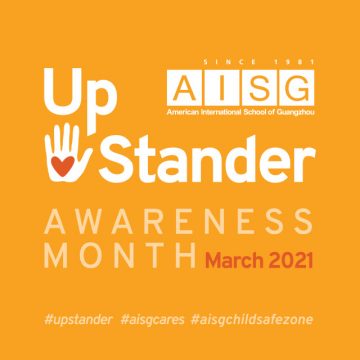
The month of March is dedicated to the concept of upstanding and eradicating bullying in school. By definition, upstanding is the act of standing for the victim of a bully, intervening and defending the victim against the bully. AISG has been establishing these special “months” following the rise in awareness of teenagers’ safety issues and personal well-being. The previous “month” had the concept of child protection and this time, the central theme is “Upstander Awareness”, which educates the students of AISG on how to be an upstander against bullying.
According to the AISG eNews from last Friday, this month will hopefully “equip our entire community to be a force of good against others who would seek to harm or exert their power over us.”
Students in the secondary school will focus on activities during their TARGET or community service times on Tuesdays that encourage them to be proactive in going against bullies. These activities will hopefully raise awareness of the concept of bullying while teaching students to take proactive steps to address and help those who are victims of bullying.
Last Tuesday, high school students were given a presentation on the basic definitions of bullying and were asked to discuss the degree in what is OK to do and what is not, during their community service times.
While these activities serve a good purpose in that they try to raise awareness of various issues many teens experience, many have also raised concerns about the use of community service meeting times. With the new schedule implemented, most community service organizations meet Tuesday for 45 minutes at the end of the day, instead of the usual Wednesday after school. By taking up time for community service meetings, many coordinators are worried as their loss in time is not compensated with additional meeting opportunities.
According to Sheila W., an active member of the AISG community, “because they use the same materials and activities on all students of the secondary school, many ideas are not as useful to high-school students.” She claims that definitions of key terms such as “upstanders, bullying, and cyberbullying” are terms many high school students are familiar with and thus, do not need to be taught again.
Even with many opinions believing the events to be useless to especially the high-school students, it is still necessary for students to be given opportunities to learn about important themes such as bullying. What do you think about these activities? Comment your thoughts below!